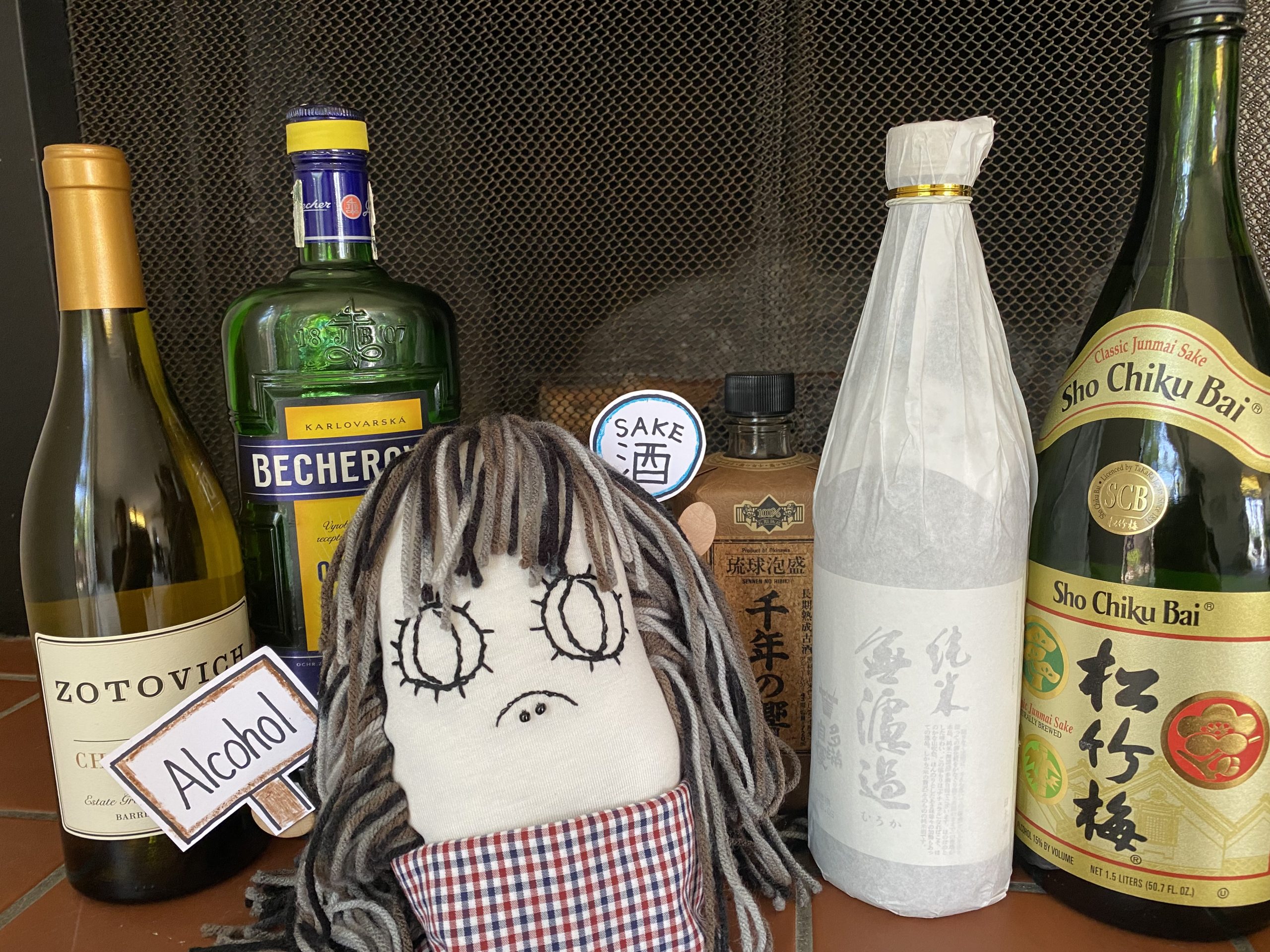
Why do I need to get alcoholic beverages for my long-term stockpile?
“I don’t drink alcohol… but do I still need it?”
“Which alcohol should I get?”
“In an emergency situation, will people still want to drink alcohol??”
Most people might not think of alcohol as a necessity, but which one do you think people would prefer to have in a long-term emergency: alcohol? or gold? I likely won’t need gold in a true emergency, but I might seriously want a drink. I don’t think the government will include alcohol in relief supplies, and it might be difficult to find alcohol in a long-term emergency because of supply chain disruptions. And we don’t need to think about alcohol just for drinking and cooking. Alcohol will be a valuable commodity in hard times, good for bartering in exchange for food or other essentials. Alcohol is a universal currency in that will never lose its value. During a long-term emergency situation, liquor will be a precious resource. This is the main reason to get alcohol for your stockpile, and this is the reason I stocked up.
Alcohol will be a valuable commodity in hard times, good for bartering in exchange for food or other essentials.
We can use alcohol for:
- Starting a fire
- Pain relief (as a sedative)
- Sterilizing
- Making a weapon (in a worst-case scenario)
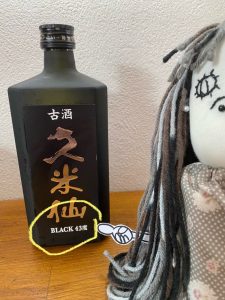 Any liquor that’s 40% ABV (alcohol by volume) or more can be used to sterilize wounds. Surgical equipment can be sterilized with anything that’s 60% ABV or higher.
Any liquor that’s 40% ABV (alcohol by volume) or more can be used to sterilize wounds. Surgical equipment can be sterilized with anything that’s 60% ABV or higher.
Many alcoholic beverages are made from natural starch and sugar. Fermentation (and distillation for certain drinks) is used to produce the alcohol content. Technically, alcohol contains a lot of calories. But please do not worry too much about calories from alcohol. Your body processes calories from alcohol differently than it does calories from sugar, and alcohol calories aren’t tied directly or conclusively to weight gain. (Of course, sweet liqueurs have calories from both alcohol and from sugar, so those types of sugary drinks may still be worth worrying about.)
What are the different kinds of alcoholic beverages?
Alcoholic beverages are classified into two main types: undistilled (fermented) and distilled.
★Distilled alcohol: Vodka, Whiskey, Brandy, Rum, Gin, Tequila, Shochu and Awamori.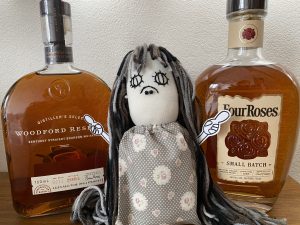
Distillation is heating a fermented liquid to create vapor and then condensing that vapor back into liquid form. This process separates alcohol from water and other components, resulting in a beverage with a higher alcohol concentration.
A few other names for / examples of distilled alcohol (20%-95% ABV):
-
- Spirits
- Liqueurs
- Everclear
- Moonshine
★Undistilled alcohol: Beer, Wine, Cider, and Sake.
Undistilled, or fermented, alcohol is produced by yeasts or molds converting fruits, grains, or other sources into alcohol and carbon dioxide. These beverages have a lower alcohol content compared to distilled spirits.
-
- Beer, malt liquors, and coolers (3%-15% ABV)
- Wine (8%-18% ABV)
- Sake (13%-17% ABV)
Distilled alcohol has a higher concentration of alcohol content, and will last indefinitely. As such, we should get distilled alcohol for our long term stockpile. Don’t worry too much about the 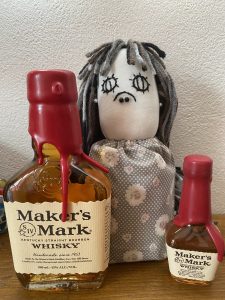 brand, it’s ok to get your favorite distilled alcoholic beverages. If you don’t know a lot about alcoholic beverages, feel free to buy the any of the drinks pictured in this post. (The pictured brands are not sponsors, but I do recommend them.)
brand, it’s ok to get your favorite distilled alcoholic beverages. If you don’t know a lot about alcoholic beverages, feel free to buy the any of the drinks pictured in this post. (The pictured brands are not sponsors, but I do recommend them.)
How to store
- Spirits with a higher alcohol content (around 17% or above) will generally last the longest. Most spirits will last indefinitely, although their flavors may change over time.
- Most wine, once opened, will rapidly start to go bad. But if wine remains unopened and stored correctly, at about 55-60 degrees Fahrenheit, wine can last for about 5-10 years.
- Most beer last for about 6-9 months beyond dates on the label.
- For your long-term stockpile, keep alcohol in a cabinet away from heat and light.
- If the bottle is sealed with a cork, it’s best to store the bottle on its side so that the cork does not dry out and crack.
Things to Remember
- Keep your food in a cool, dark place. No heat and no direct sunlight.
- Please do not forget that before eating long-term stockpile foods, absolutely check the foods’ appearance and smell. Trust your five senses. Eat them at your own risk.
Nowadays, I try not to say “Sorry, I don’t drink,” when friends offer me alcohol, as a gift. 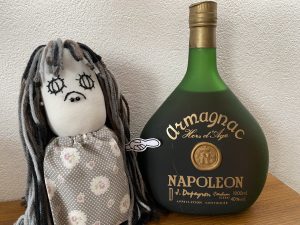 Especially distilled alcohol. Even if I don’t end up drinking it myself, at least I’ll have it to trade in a long-term emergency.
Especially distilled alcohol. Even if I don’t end up drinking it myself, at least I’ll have it to trade in a long-term emergency.
See you next time.